Ditapis dengan
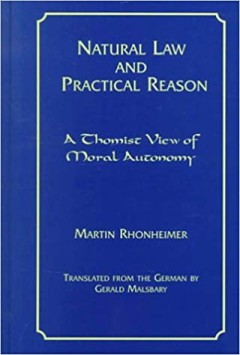
Natural Law and Practical Reason: A Thomist View of Moral Autonomy
Rhonheimer applies moral theology to practical questions, such as, what does it mean to violate the natural law, or to be “unnatural”?
- Edisi
- -
- ISBN/ISSN
- 978-0-8232-1979-7
- Deskripsi Fisik
- xxii + 620 pg.; 23 cm.
- Judul Seri
- -
- No. Panggil
- 171.2 RHO n

Exemplarist Moral Theory
In this book Linda Zagzebski presents an original moral theory based on direct reference to exemplars of goodness, modeled on the Putnam-Kripke theory which revolutionized semantics in the seventies. In Exemplarist Moral Theory, exemplars are identified through the emotion of admiration, which Zagzebski argues is both a motivating emotion and an emotion whose cognitive content permits the mappi…
- Edisi
- First Print
- ISBN/ISSN
- 978-0-19-065584-6
- Deskripsi Fisik
- xiii + 274 pg.; 24,5 cm.
- Judul Seri
- -
- No. Panggil
- 171 ZAG e
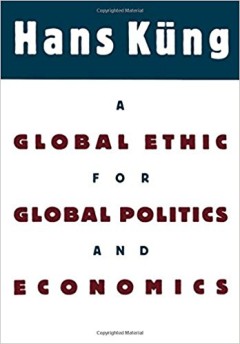
A Global Ethic for Global Politics and Economics
As the twentieth century draws to a close and the rush to globalization gathers momentum, political and economic considerations are crowding out vital ethical questions about the shape of our future. Now, Hans Küng, one of the world's preeminent Christian theologians, explores these issues in a visionary and cautionary look at the coming global society. How can the new world order of the twen…
- Edisi
- -
- ISBN/ISSN
- 0195122283
- Deskripsi Fisik
- xvii + 315 pg.; 28 cm.
- Judul Seri
- -
- No. Panggil
- 170 KUN g

Dimensions of Ethical Thought
- Edisi
- -
- ISBN/ISSN
- 0820405906
- Deskripsi Fisik
- x + 289 pg.; 23 cm.
- Judul Seri
- -
- No. Panggil
- 170 DIM d
- Edisi
- -
- ISBN/ISSN
- 0820405906
- Deskripsi Fisik
- x + 289 pg.; 23 cm.
- Judul Seri
- -
- No. Panggil
- 170 DIM d

The Philosophy of Right and Wrong: An Introduction to Ethical Theory
- Edisi
- -
- ISBN/ISSN
- 0710208510
- Deskripsi Fisik
- 176 pg.; 21,5 cm.
- Judul Seri
- -
- No. Panggil
- 171.2 MAY p
- Edisi
- -
- ISBN/ISSN
- 0710208510
- Deskripsi Fisik
- 176 pg.; 21,5 cm.
- Judul Seri
- -
- No. Panggil
- 171.2 MAY p

Ethics: Discovering Right and Wrong
- Edisi
- -
- ISBN/ISSN
- 0534123783
- Deskripsi Fisik
- xiv + 210 pg.; 23 cm.
- Judul Seri
- -
- No. Panggil
- 170 POJ e
- Edisi
- -
- ISBN/ISSN
- 0534123783
- Deskripsi Fisik
- xiv + 210 pg.; 23 cm.
- Judul Seri
- -
- No. Panggil
- 170 POJ e
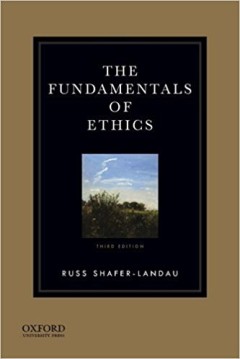
Fundamentals of Ethics
In The Fundamentals of Ethics, Third Edition, author Russ Shafer-Landau employs a uniquely engaging writing style to introduce students to the essential ideas of moral philosophy. Offering more comprehensive coverage of the good life, normative ethics, and metaethics than any other text of its kind, this book also addresses issues that are often omitted from other texts, such as the doctrine of…
- Edisi
- -
- ISBN/ISSN
- 0198246838
- Deskripsi Fisik
- x + 163 pg.; 21,5 cm.
- Judul Seri
- -
- No. Panggil
- 170 FIN f
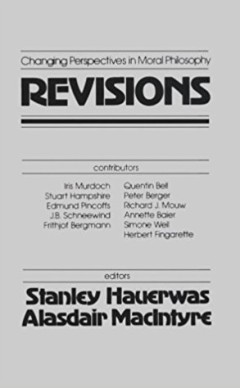
Revisions: Changing Perspectives in Moral Philosophy
- Edisi
- -
- ISBN/ISSN
- 026816143
- Deskripsi Fisik
- x + 286 pg.; 23 cm.
- Judul Seri
- -
- No. Panggil
- 170 REV r
- Edisi
- -
- ISBN/ISSN
- 026816143
- Deskripsi Fisik
- x + 286 pg.; 23 cm.
- Judul Seri
- -
- No. Panggil
- 170 REV r

Great Traditions in Ethics
- Edisi
- -
- ISBN/ISSN
- 0534028152
- Deskripsi Fisik
- vi + 394 pg.; 23 cm.
- Judul Seri
- -
- No. Panggil
- 170 ALB g
- Edisi
- -
- ISBN/ISSN
- 0534028152
- Deskripsi Fisik
- vi + 394 pg.; 23 cm.
- Judul Seri
- -
- No. Panggil
- 170 ALB g
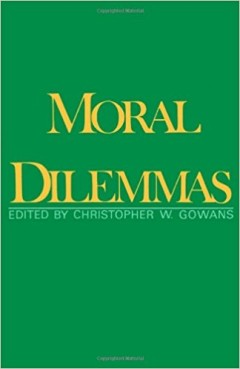
Moral Dilemmas
The essays in this volume illuminate a central topic in ethical theory: moral dilemmas. Some contemporary philosophers dispute the traditional view that a true moral dilemma - a situation in which a person has two irreconcilable moral duties - cannot exist. The book provides the historical background to the on-going debate with selections from Kant, Mill, Bradley, and Ross. The best recent work…
- Edisi
- -
- ISBN/ISSN
- 0195042727
- Deskripsi Fisik
- x + 302 pg.; 21 cm.
- Judul Seri
- -
- No. Panggil
- 170 MOR m
 Karya Umum
Karya Umum  Filsafat
Filsafat  Agama
Agama  Ilmu-ilmu Sosial
Ilmu-ilmu Sosial  Bahasa
Bahasa  Ilmu-ilmu Murni
Ilmu-ilmu Murni  Ilmu-ilmu Terapan
Ilmu-ilmu Terapan  Kesenian, Hiburan, dan Olahraga
Kesenian, Hiburan, dan Olahraga  Kesusastraan
Kesusastraan  Geografi dan Sejarah
Geografi dan Sejarah